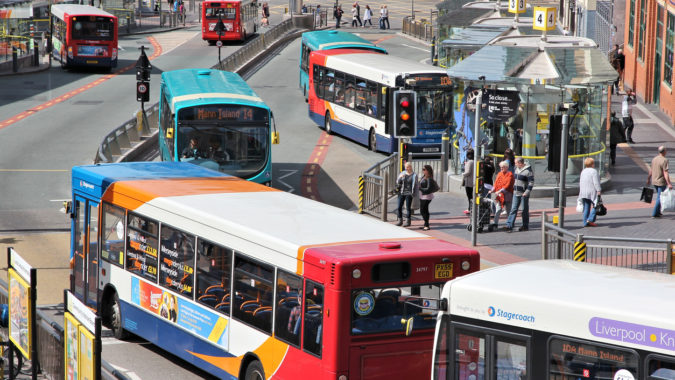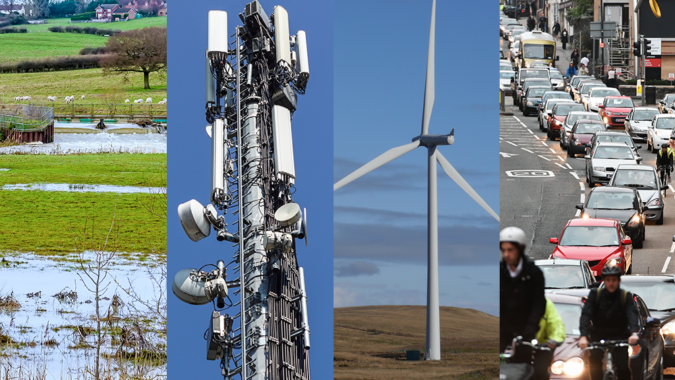Looking beyond the urgent priorities raised by the present pandemic, Commission Economic Advisor Beth Horsman introduces a new discussion paper exploring the vexed subject of competitiveness and its implications for long term infrastructure planning.
When you think of competitiveness, what sort of images spring to mind? Furiously fought sporting fixtures; athletes training for competitions; a new business working hard to outsell other rival businesses in the market?
Competitiveness has been a favourite term of many politicians, policymakers and business leaders over the years. It is often an objective of government policy in developing, newly industrialised and developed countries alike. There are even organisations dedicated to measuring and comparing the competitiveness of nations.
However, there is a lot of ambiguity surrounding the term. Whilst competitiveness is commonly referred to, it is not consistently applied. It has been described by some academics as one of the most misunderstood concepts in economics.
On one level, it’s pretty straightforward. It seems intuitive to apply the logic of outcompeting your rivals to a national level: for example, by considering how the UK’s exports or wage costs compare to other countries.
But this approach to competitiveness has faced criticism; it is not constructive to draw these parallels between a business and a country, implying that the success of one nation has to be at the expense of another.
The reality is that trade between places, whether that’s between two cities, regions or countries, is based on making the best use of the resources. It is a collaborative exercise: whilst there are winners and losers from trade, and the gains are not necessarily distributed evenly, whole countries do not lose out at the expense of another nation’s success.
Such an approach also makes it difficult to evaluate the role of infrastructure in competitiveness. To help understand this, the National Infrastructure Commission has published the discussion paper Improving Competitiveness.
Rather than summarising competitiveness in a single definition, we have taken a balanced scorecard approach to interpreting the concept. We think that improving access to markets, access to mobile labour and capital and globally significant clusters and assets are all important dimensions of competitiveness, and infrastructure’s contribution to these is explained below.
First, infrastructure helps make it cheaper and easier to trade, both within the UK and internationally. It does this by helping to reduce the cost of distance and lower trade barriers, improving market access and connectivity. By allowing people and businesses to trade, they can specialise on their relative strengths and be more productive.
Second, infrastructure can play a role in enabling places to access the people and investment they need. This could be attracting investment to specific projects or enabling workers with particular skills to move to the area by supporting new housing development with strong public transport links.
Finally, globally significant clusters and assets are important for competitiveness. These clusters can have an international profile and contribute to the performance of our economy. Infrastructure is crucial to their formation, growth and success.
For example, the future success of the Cambridge-Milton Keynes-Oxford is reliant on improved transport infrastructure. Transport is key to easing congestion, helping more people access jobs in the highly productive urban centres.
Infrastructure assets and industries can themselves be important for competitiveness. Clusters are emerging close to offshore wind farms in places such as the Humber and North East England. Similar technology clusters could develop in future around expertise in low carbon technologies.
Improving competitiveness is the first in a series of papers reviewing each of our objectives, as set out in the Commission’s Charter.
A definition of competitiveness will clarify the Commission’s understanding of how infrastructure can contribute to the UK economy alongside supporting economic growth. This paper sets out the options for interpreting competitiveness, the evidence supporting each interpretation and its relevance to infrastructure, and explains how we could measure our progress in meeting the objective.
We will follow with further discussion papers unpicking infrastructure’s role in supporting sustainable growth in all regions of the UK and improving quality of life.
We welcome comments on this discussion paper, including evidence on how infrastructure affects competitiveness and ways that the we could monitor and measure its impact. Please share them by email by 30 September 2020.



